A quick look in the telephone directory in Lavelanet reveals that many of the names are of Spanish origin, with “ez” or “o” at the end. It is not surprising. In 1936 this small and then prosperous textile town in the département of Ariège, which lies at the foot of the Pyrénées, was a refuge for many Republicans fleeing Franco's Spain. Here they met a number of their compatriots who had made the same journey some decades earlier. Today this immigrant town – after the Spanish came migrants from North Africa – is one of those areas coveted by the far-right Front national at the local council elections in March.
Yet Lavelanet and the rest of the Ariège have nearly always voted for the Left. In this poor part-rural, part-industrial département, with its strong tradition of secular socialism and republicanism, the Socialist Party (PS) remains dominant, with the French Communist Party (PCF) hanging on to a few significant areas. In each national election the Ariège shows itself to be one of the most socialist départements in France. During the last presidential election in 2012 some villages recorded votes of 50%, 60% or even 70% for François Hollande in the first round.
The big party figure in Lavelanet is Jean-Pierre Bel. It is here that the man who is currently the socialist president of the French Senate, and who is very close to President Hollande, started his political career. He retook the town in 2001 after it had briefly been captured by the Right and used it as his springboard towards the upper echelons of the state.
Yet for local residents, aside from the fleeting pride that one of their number has joined the ranks of the powerful, the ascent of Jean-Pierre Bel has not changed much. In thirty years Lavelanet has lost thousands of jobs and around 3,500 inhabitants. In its centre the broad streets and the large concreted esplanade over the river now seem over-sized for the town. Out of those eligible for work, a quarter are without a job. The textile industry has disappeared and while the state-of-the art engineering industry is doing well, it does not employ local labour because people lack the qualifications.
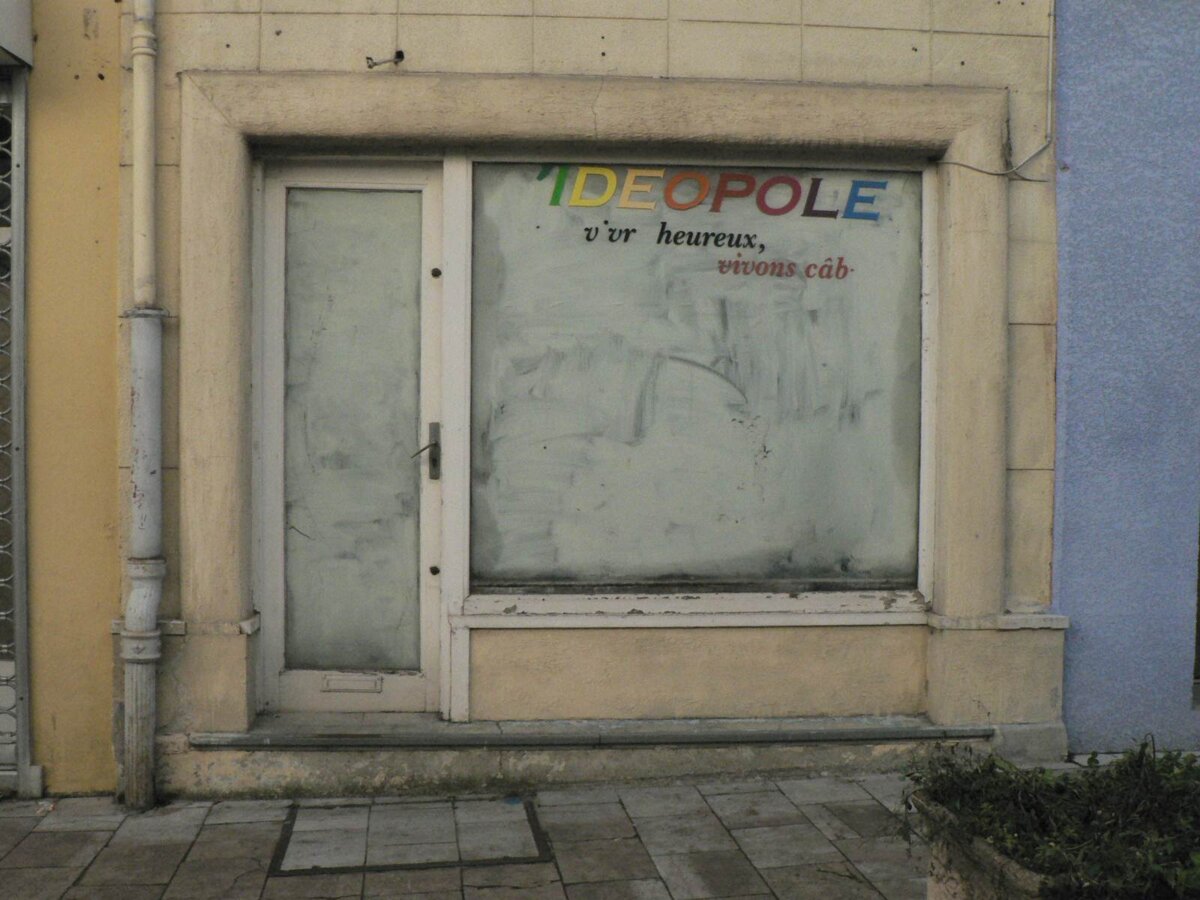
Enlargement : Illustration 1

François Hollande received 33.76% of the vote here in the first round of the 2012 presidential vote, far ahead of FN candidate Marine Le Pen and Nicolas Sarkozy. And the current president still has his local supporters. One is Ariel Nunez, the boss of a small firm that sells fishing tackle by mail order, an old friend of Jean-Pierre Bel whom he sees at weekends. “Hollande is a super guy, personally I'm very happy,” says Nunez. “Yes, it's true that he has a problem, this image that has stuck to him ever since the 'Guignols de l'info' [editor's note, the satirical puppet show which portrays Hollande as a jovial character but a bit of a simpleton]. He is doing all he can. It just needs for unemployment to fall and he'll bounce back.”
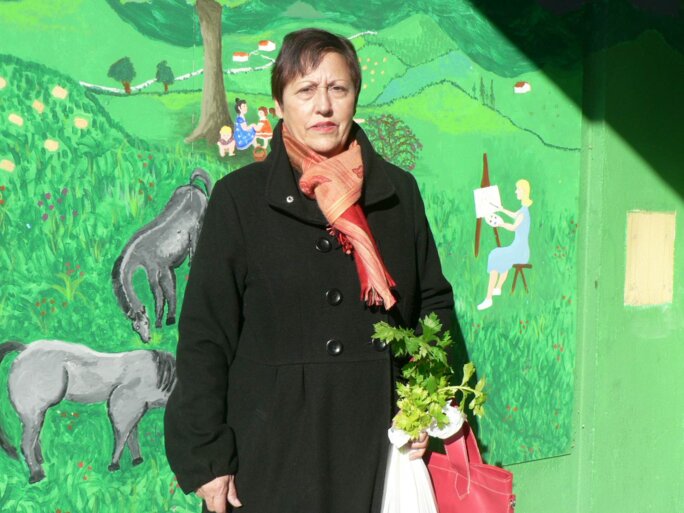
Enlargement : Illustration 2

Another supporter, if a less fulsome one, is Maria Lopez, a former representative for the CGT trade union at the large local textile Roudière factory which closed at the start of the 1990s. She is now retired, having had a series of temporary jobs since the factory shut. “Hollande has inherited what happened before him. Really, I feel sorry for him,” she says.
Yet many who voted for the president are, nonetheless, beginning to lose patience. Pierre – his name has been changed - a restaurateur with the look of a rocker voted for hard-left candidate Jean-Luc Mélenchon in the first round in 2012 and for Hollande in the second. “We're still waiting for the change,” says Pierre, referring to Hollande's election slogan that “change is now”. He adds angrily: “We need a revolution, nothing less.”
Geneviève Lagarde, a 53-year-old district nurse, also voted for Hollande in round two having opted for someone “further to the left” in the first round. She does not hide her bewilderment. “There was a moment of hope, but now it's just the same old,” she says. “I can't see what's changed.” She ranges against the “conflicts in the government”, the abandoning of the eco-tax (“A good thing, they should not have given way even if it was badly perceived”) and the way that the “wealthy people are not being hit while they whittle away at the incomes of those on low pay and of pensioners”. Geneviève adds: “In wanting to run with the hare and hunt with the hounds, they've ended up doing nothing! They give way each time and discredit themselves, that pains me. People like me on the Left, we're disoriented.” When it comes to the European elections in May she will not be voting for the PS. “Not against them, but not for them either,” she explains.
Mourad, 27, is hanging around the betting shop near the job centre and does not really like talking about politics. “I just want a job, any job,” he says. “But it's not easy with my appearance and my beard. Hollande says that unemployment is going down but that's because everyone is on RSA [editor's note, Revenu de solidarité active, which is a top-up payment for those on low wages designed to keep them in work].”
a
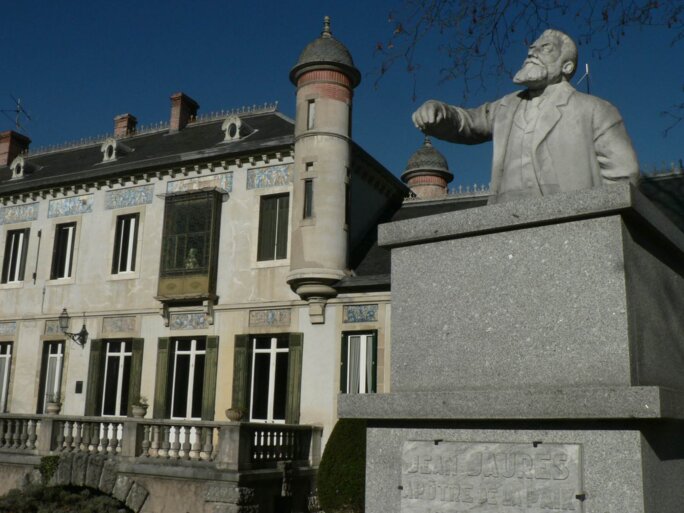
Enlargement : Illustration 3

In the large town centre car park Mediapart comes across Marie-France, 37, a single mum with two children who sells stipple drawings. In the past she supported François Mitterrand, the socialist president from 1981 to 1995, but hasn't voted since. “In fact, we've never spoken so much about politics between friends and with family since Hollande was elected,” she says. Marie-France does not discuss Hollande's policies with those close to her, which in her view are neither better nor worse than those of Sarkozy. Instead what obsesses her is the head of state's style, which she gleans from the television. “He doesn't look like a president...he is not reassuring...when we mention him we laugh,” says Marie-France. Further on, a grandmother who politically is“on the right” makes fun of the sense of disappointment people feel towards Hollande. “Everyone is a socialist here but it's very odd, no one now says they voted for him!”
Marc Sanchez, who succeeded Jean-Pierre Bel as mayor of Lavelanet, admits there is “great disappointment” in the town. “Above all people expected work. The unemployment trend may perhaps have started going down but we don't see that here.” The mayor continues: “At the start of autumn [editor's note, when tax demands start arriving in France] I came across lots of pensioners unhappy at having to pay several hundred euros in income tax for the first time. We coped with the new school hours but it hasn't been easy, and it's been even harder for small communes. In fact,” Sanchez concludes, “it's quite hard to explain what the government is doing.”
The former socialist Euro MP Michel Teychenné, who current leads the opposition on the town council at Pamiers, the economic capital of Ariège and one of the rare towns in the commune to be controlled by the Right, is realistic about what lay behind the presidential election outcome in 2012. “People voted for Hollande first and foremost to get rid of Sarkozy,” he says. But he adds: “There was a a very strong expectation over pensions, standard of living and unemployment. Today there is the impression that the economic policy being carried out is pretty much the same as that of the previous government. Our fellow citizens consider that they are being told 'pay up, peasant' a little too often! They don't see the light at the end of the tunnel,” concludes Teychenné, who is close to the education minister Vincent Peillon.
Near Pamiers, in a part of the Ariège that is becoming a spill-over area for the city of Toulouse to the north, new housing estates are springing up like mushrooms. La Tour-du-Crieu (see photo below) is one such new village, being built near the motorway that connects Toulouse with the Ariège administrative capital Foix. The commune attracts lower middle class families looking to buy a home of their own.
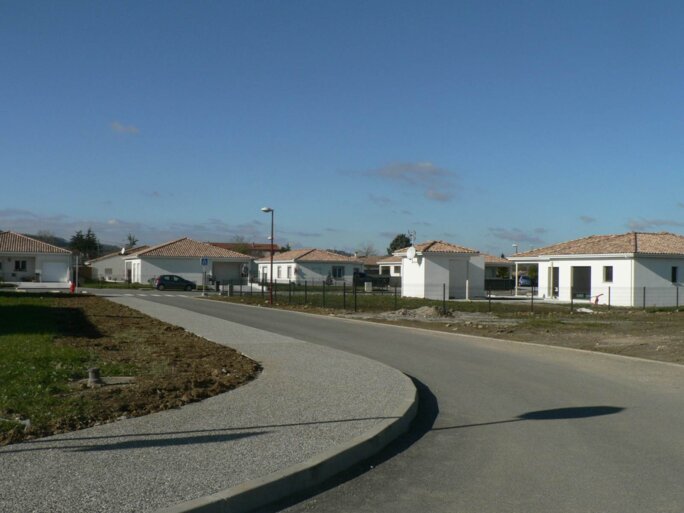
Enlargement : Illustration 5

It is midday on a Friday in December and Émilie, a 30-year-old care assistant, has come home from work. She and her partner live in a small, new, white bungalow surrounded by a narrow strip of lawn. “Hollande? No comment,” says Émilie, who voted for him in both rounds in 2012. In 2007 she had voted for Sarkozy. “I had believed in him a bit. That's now twice that I've seriously committed myself and each time I've been disappointed.”
Politics does not really interest Émilie and often she will switch off the television. “It all makes people just want to get on and do their own thing, each to his own,” she says. “I won't do it, but I understand why people want to get themselves heard by voting for the Front national. The lack of jobs for young people, the pensioners who I deal with who sometimes live in poverty...it's shameful.”
Jean, a former manager in the French post office La Poste who is now retired, is similarly disillusioned “I will never vote socialist again, that's clear,” he says. Jean comes from a left-wing family, and was an activist in the Socialist Party, but all that is now behind him. “I've been disappointed for a number of years but this...there have been lots of unkept promises, that will cause a lot of disappointment. We were told, for example, that VAT, it was a sworn promise, that they'd never do that [editor's note, meaning raise the main VAT rate, which went up from 19.6% to 20% on January 1st 2014]. What they say is then contradicted in the following days. I no longer believe in anything they say.”
Jean adds: “Hollande reacts a lot more to military problems that to the problems that concern the French people, unemployment and the economic crisis. Is it a diversionary tactic? I don't know.”
'A right-wing Left'
The far-right Front national has a low profile in Lavelanet. The FN's departmental secretary Thérèse Aliot, who is the mother of the party's vice-president Louis Aliot, the partner of party president Marine Le Pen, stood here for local elections in 2011. Speaking to the local press she claimed she will be able to put together a list of FN candidates for the council elections in March in “the town of the future ex-president of the Senate, which will have a symbolic value”. However, finding 30 people willing to stand on an FN list in Lavelanet will not be easy. The far-right party is also planning to put up a list of candidates for the local elections in Pamiers, where it did well in regional polls three years ago. However, it is the FN's likely support in May's European elections that really worries local socialists. “The FN vote will take off” says Michel Teychenné.
Guillaume Eychenne, 33, the boss of CaféIn, one of the few town-centre bars in Lavelanet, also predicts a tough spring for the Left. “It's going to be strange for the socialists, for the people will vote 'elsewhere'. There is more racism. And yet, not that many people here are really French!” he says. “Voters used to supporting the Left are in the process of switching to the extreme right. Even people whose parents are Spanish! And then the Portuguese keep to themselves, the Arabs [editor's note, meaning people of North African origin] keep to themselves...”
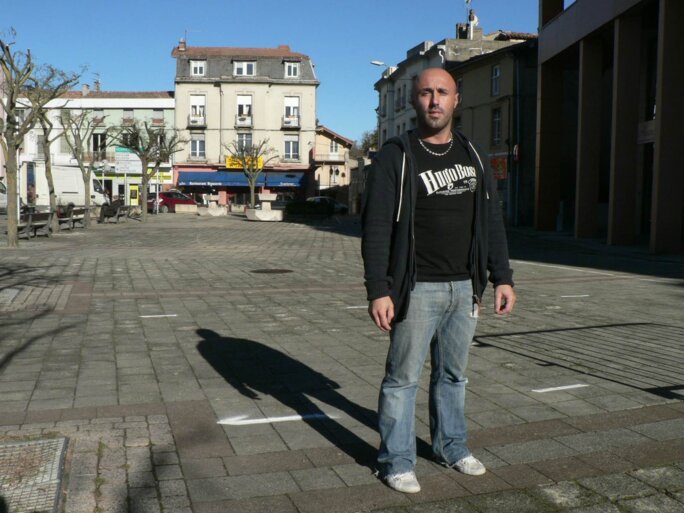
Enlargement : Illustration 7

Carolyne, 32, is typical of the kind of elector that the Left has lost. Every day she comes to see what work is on offer at the job centre. She takes with her a thick yellow file of papers: she is serious and wants to show that, not like the people who “are happy on 400 euros a month”, she points out. “I don't want to be, what's it called, 'dependent', hooked on handouts, like those who have food parcels, their health insurance paid, free medical care, vouchers for petrol and charity,” says Carolyne. “When I am working I am the happiest person in the world. My view is 'If you want to eat, work!'.”
However, at the moment Carolyne is having a hard time. A former security guard who retrained to work in ambulances, she used to live in Toulouse, split up from her boyfriend and now lives with her mother to save on childcare costs for her three children. “To find work I'd have to go to Toulouse or [the neighbouring département of] the Aude, but that costs money for fuel.”
When it comes to politics Carolyne was originally “PS, of the Left”. Years later she still finds it hard to understand how, once she had lost the 2007 presidential election, socialist candidate Ségolène Royal explained that she had not believed in a part of her party's manifesto – for example a minimum wage increased to 1,500 euros a month gross.
Carolyne herself had voted for Nicolas Sarkozy in 2007, then in 2012 she wanted to get rid of him and voted for Marine Le Pen in the first round and Hollande in the second. She regrets that now. “This president is a clown,” she says. “He doesn't look right, he's a twerp this guy,” she adds, twisting her mouth in disdain. From now on Carolyne will vote for the Front national. “I'm quite clear on my politics now,” she says. She lowers her voice and looks around. “You don’t say that round here.” Even so, she still questions her position. “I haven't always voted for the Front national because, after all, I am humane. You've got to think about the past, the immigrants, we were very happy to have them...”
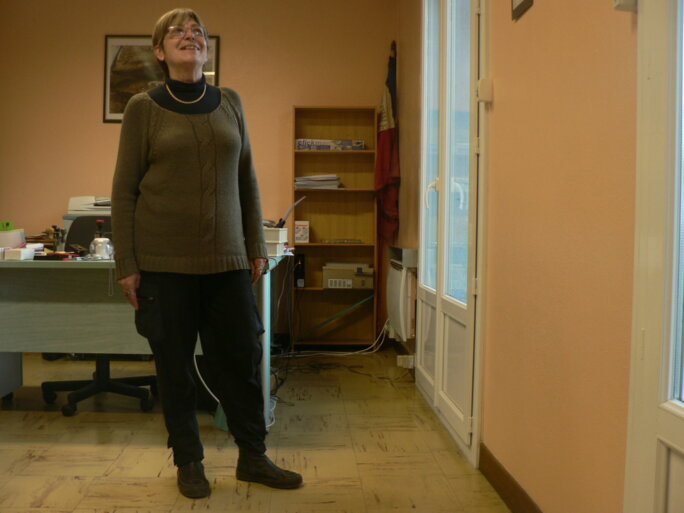
Enlargement : Illustration 8

Perched at an altitude of 600 metres on the road between Lavelanet and Foix, the village of Nalzen (population 123) is one of the 19 communes in the Ariège – which has 332 communes in all – where Marine Le Pen came top in the first round of voting in 2012. “I was surprised,” says Régine Authié, the mayor, who has no political party affiliation. “We've only had one family of Moroccans here, that was a long time ago and it all went very well.” She says that the FN vote in her village is more than anything “the expression of a general discontent, with politicians on the Right as well as the Left”.
In the European elections in May Régine Authié predicts a vote of “discontent 'plus'”. She adds: “The Left is no longer what it was, it's a right-wing Left! They are turning the screws on everything, and it is getting harder and harder to help the villages,” she says. The mayor says she is standing down at the elections in March to make the most of her retirement. “I don't even know if my successor will be able to get a list of eleven people,” says Régine Authié. “People have lost motivation. They are losing interest in public life.”
- See also the second article in this series of three reports: 'It's becoming like Chicago': the slide into despair and fear of a once-thriving small French town
-----------------------------------------------------------------
English version by Michael Streeter


